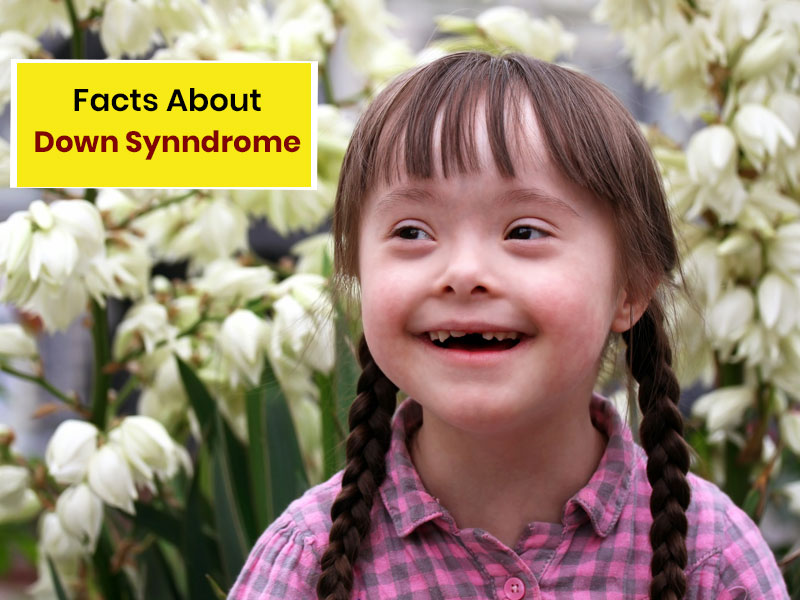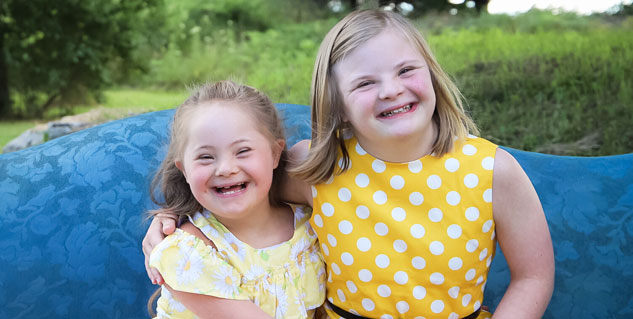
Birth defects can be extremely disheartening for the parents and their relatives. Most of the birth defects are because of genetical problems that occur from the childbirth. These chromosome disorders cannot be treated with mere medicines or surgery, hence in most of the cases it lasts for the lifetime. Down syndrome is one of the disorders where the baby develops an extra copy of the 21st chromosome due to which some facial features might differ from other children. It could possess serious problems growing up as there are some developmental delays and difficulties with children having down syndrome. Even after this there are many important facts that are usually not known by the people, here are some facts that you must know about this genetic disorder.
Table of Content:-
Lesser-Known Facts About Down Syndrome
1. It is most common genetic disorder
Down syndrome is actually the most occurring chromosomal disorder that occurs in the children. This condition differs in every individual because the genetic functioning might be different according to the gene transfer, but overall, it remains more of less the same. People have mild to moderate intellectual development in this stage and there could be some complication because of this too. People having down syndrome usually remain healthy in most cases but some have varied health problems such as heart defects that could be life-threatening.

2. Three types of Down syndrome
Most of the people consider down syndrome to be a singular type of disease but it actually has 3 types.
1. Trisomy 21- About 95% of cases of down syndrome fall under this type. This is caused because of error in cell division and hence called as nondisjunction syndrome. Nondisjunction down syndrome has three copies of chromosome 21 rather than usual two.
2. Mosaicism- Another type of down syndrome is the mixture of two types of cells. In this case, some cells have 46 chromosomes whereas some other have 47. That extra chromosome is the result of down syndrome. It happens to just 1% of people with this syndrome.
3. Translocation- This happens to nearly 4% of people having down syndrome. In this the chromosomes remain 46 but there is an additional pair of chromosomes that is attached to another chromosome partially or fully.
Also Read- What Is Postpartum Hair Fall? Know Tips To Treat By Expert
3. People with down syndrome have an extra chromosome
Yes, the nucleus of the typical cell contains 23 pair of chromosomes but down syndrome affected person has one extra partial or full copy of 21st chromosome. This actually determines your hair color and some other factors including sex drive. Children going through down syndrome has some unusual feature that occurs because of this extra pain of chromosome.

4. Maternal age is a risk factor for down syndrome
Around 80% of children that are affected with trisomy 21 type of down syndrome have maternal age factor as one of the major factors for this disorder. It has been mentioned in studies and researches that woman over the age of 35 are more likely to have babies that have down syndrome rather than younger women. Number of babies suffering from this genetic disorder in that age group is higher than usual. This data is according to National Down Syndrome Society that women over age of 35 have 1/350 chance of conceiving a baby with down syndrome.
Also Read- Can Covid Change The Brain? Here's What Scans Reveal
5. Down syndrome is a genetic condition, but it is not hereditary
Most of the people confuse genetic conditions with hereditary problems. They are not the same, neither of trisomy 21 or mosaicism down syndrome disorders have any link with hereditary criteria. Down syndrome happens because of random cell division that is independent from the history of the parents. It actually happens during the development of the child in womb of the mother.
But translocation that accounts for a mere 1 percent of the down syndrome cases can be hereditary. According to studies, one-third of the translocation cases could be caused because of family factors, but is it very low to be even evident.
Picture Credits- pexels.com
Also watch this video
How we keep this article up to date:
We work with experts and keep a close eye on the latest in health and wellness. Whenever there is a new research or helpful information, we update our articles with accurate and useful advice.
Current Version